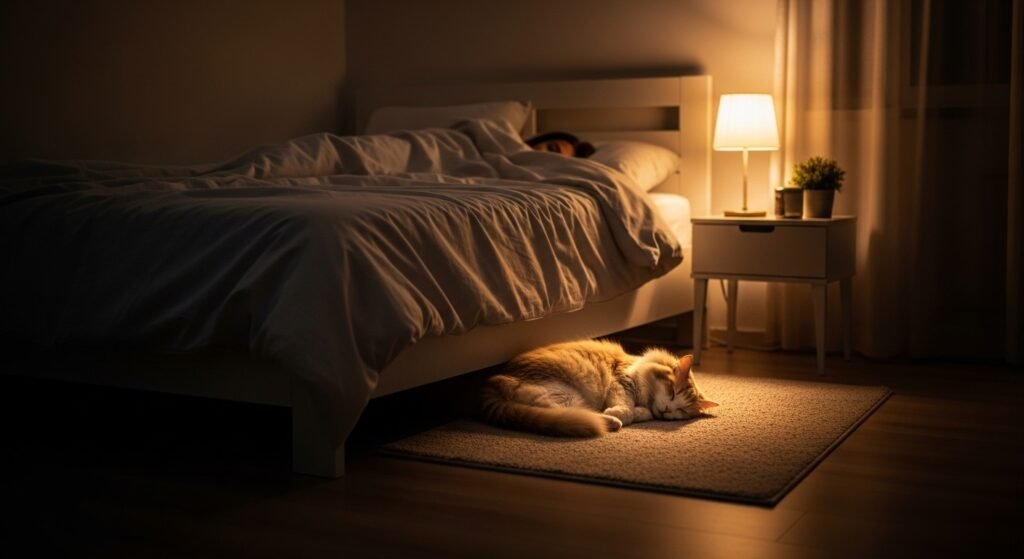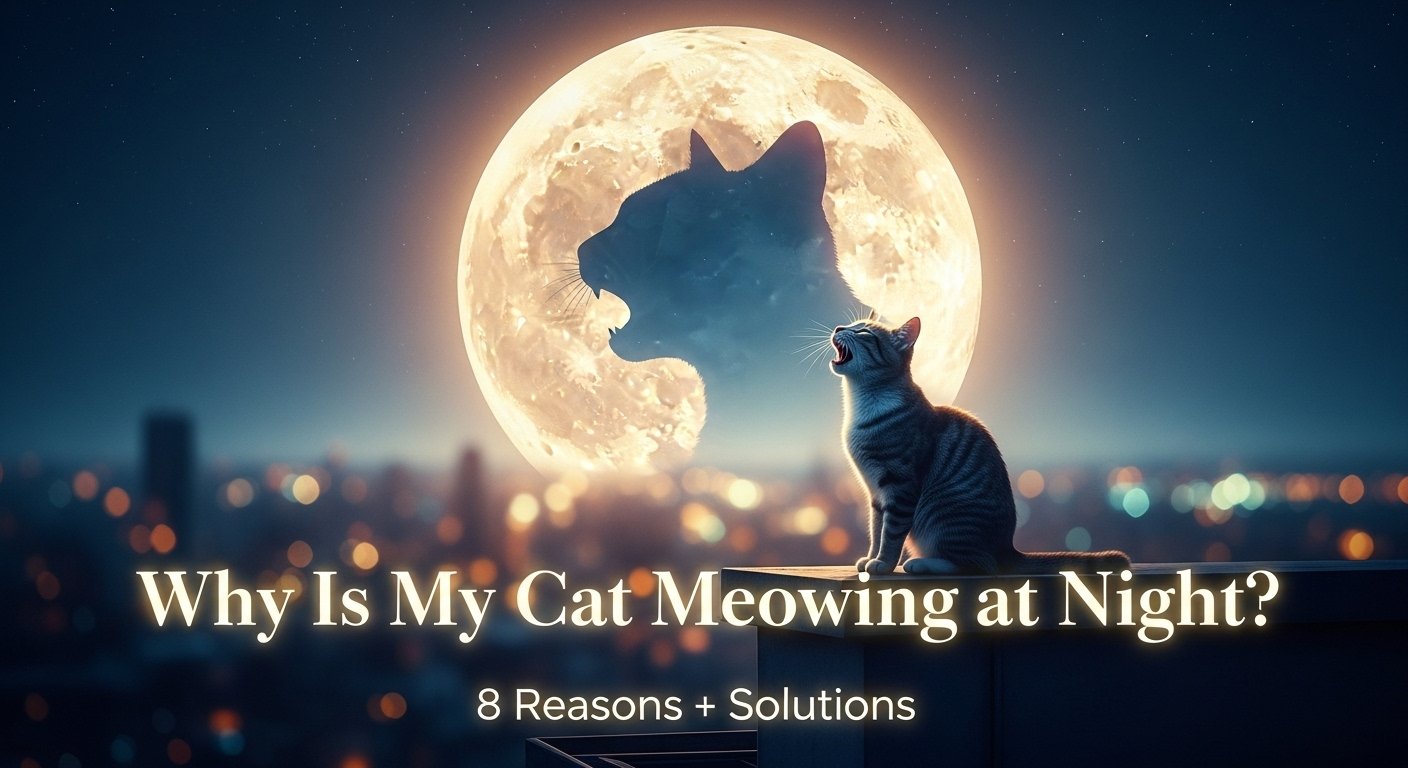
Why Is My Cat Meowing So Much at Night? 8 Reasons + Solutions
It’s 3 a.m., you’re tucked in bed, and suddenly—“MEEOOW!”—your cat has decided it’s time for a midnight concert.
If this scenario sounds familiar, you’re not alone. Nighttime meowing is a common complaint among cat parents, especially for indoor cats and certain high-energy breeds.
So why do cats meow so much at night, and more importantly—how can you get some sleep? Let’s explore.
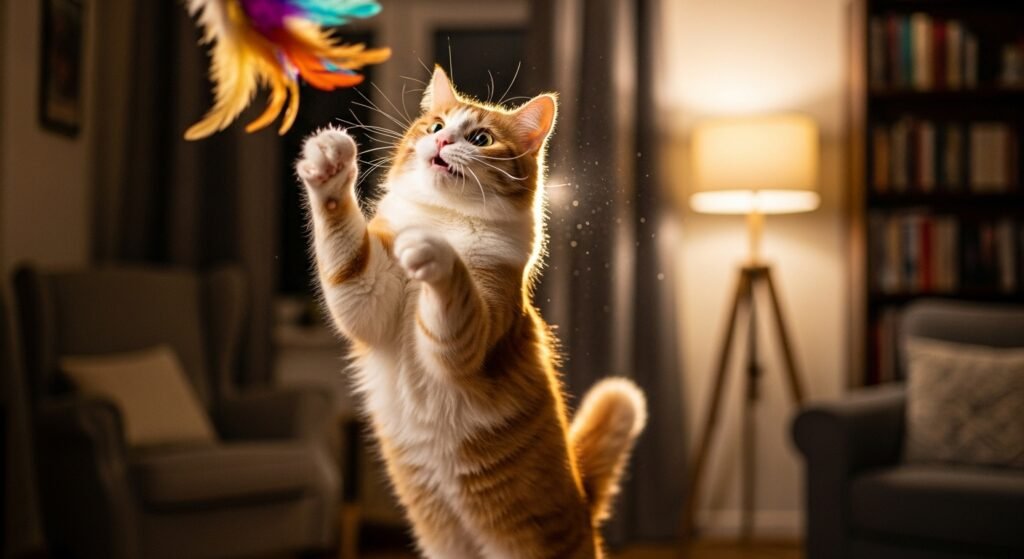
- Your Cat Is Bored
Cats are naturally more active at dawn and dusk, but some adjust their schedule to get your attention—especially if they’re bored.
Signs of boredom in cats:
- Pacing or zoomies at night
- Meowing for playtime
- Scratching furniture for attention
Solution: Add evening play sessions before bed. Use feather wands or interactive toys to tire them out.
- They’re Hungry
A cat that’s meowing at night might simply be saying: “Hey, feed me!”
Cats often associate you waking up with breakfast time. If their internal clock says it’s time to eat, you’ll hear about it.
Solution:
- Offer a small, high-protein meal before bedtime
- Use an automatic feeder to provide an early morning snack without waking you
- Seeking Attention or Comfort
Some cats meow at night because they miss your presence. This is especially common in:
- Recently adopted cats
- Kittens adjusting to a new home
- Senior cats experiencing anxiety
Solution: Give them extra cuddle time before bed, and provide a warm, cozy sleeping space nearby.
- Health Issues or Pain
Excessive nighttime meowing—especially if sudden—can signal a health problem.
Possible causes:
- Hyperthyroidism (common in older cats)
- Arthritis or discomfort
- Cognitive dysfunction in senior cats
Solution: If nighttime meowing is new or extreme, schedule a vet checkup.
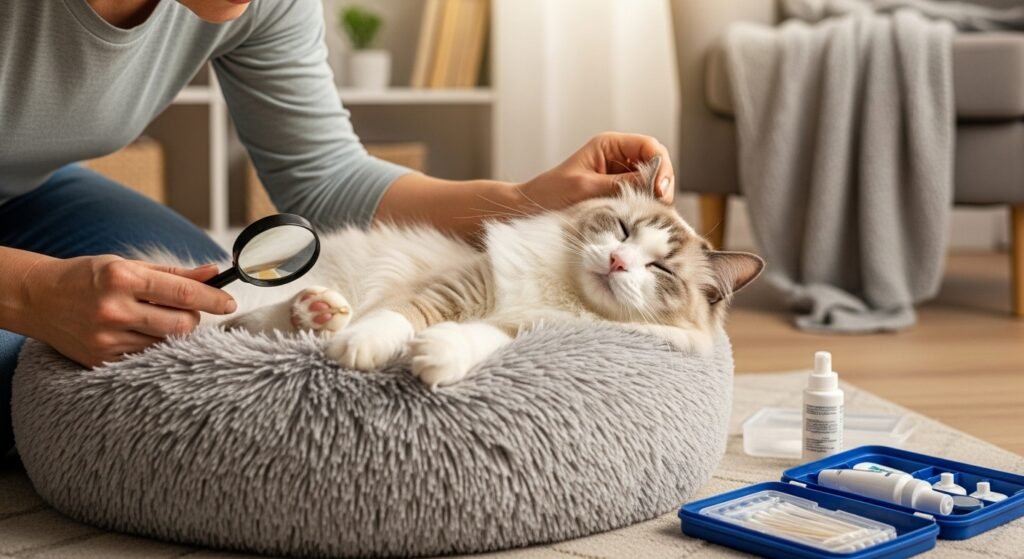
- Disrupted Sleep Patterns
Cats are crepuscular, meaning they’re naturally active during twilight hours. If your cat naps a lot during the day, they may be wide awake at midnight.
Solution: Engage them during the day—rotate toys, offer puzzle feeders, and ensure playtime in the evening.
- Mating Behavior (If Not Spayed/Neutered)
Unaltered cats may yowl loudly at night to attract mates. This vocalization is often paired with pacing, restlessness, and even spraying.
Solution: Spaying or neutering usually reduces this behavior significantly.
- Territory or Outdoor Triggers
If your cat hears other cats outside—or sees animals through the window—they might become vocal to defend their territory.
Solution:
- Close blinds at night
- Provide window perches for daytime only
- Use white noise machines to mask outside sounds
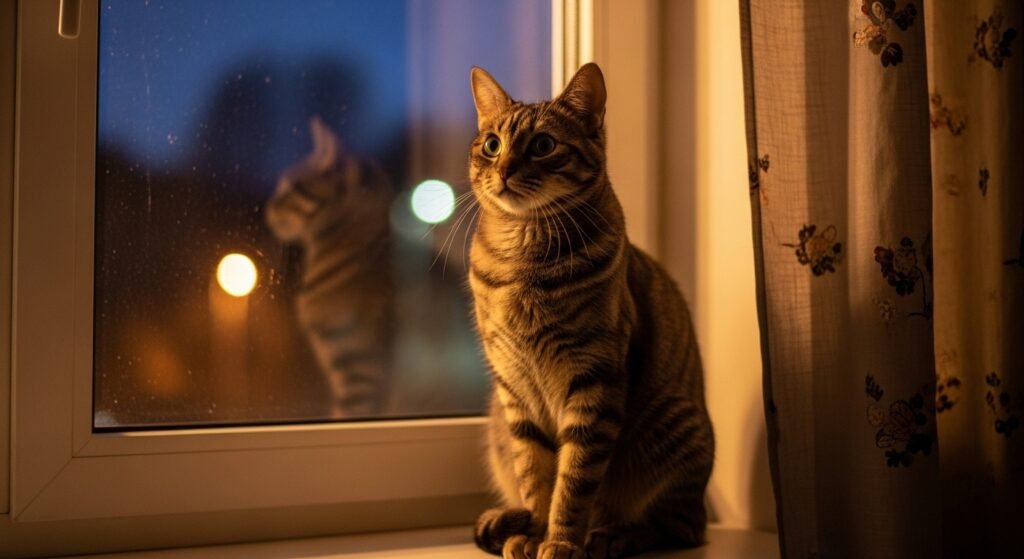
- Cognitive Dysfunction in Senior Cats
Older cats can suffer from feline dementia, which often includes confusion, disorientation, and nighttime vocalizing.
Solution:
- Keep a consistent routine
- Provide night lights for easy navigation
- Consult your vet for supplements or medications
How to Reduce Nighttime Meowing
- Tire Them Out Before Bed: Play hard in the evening
- Offer a Late Snack: Keeps hunger at bay
- Ignore Attention-Seeking Meows: Reward quiet behavior instead
- Rule Out Health Issues: Always check with a vet if behavior changes suddenly
- Consider a Companion Cat: For lonely felines (only if lifestyle allows)
When to Call the Vet
Contact your veterinarian if:
- The meowing is sudden and intense
- Paired with other symptoms (vomiting, lethargy, weight loss)
- Your cat is elderly and the behavior changes overnight
Final Thoughts: Patience + Consistency Work Best
Nighttime meowing can be frustrating, but it’s often a sign of an unmet need—whether that’s food, play, companionship, or medical attention.
With patience, enrichment, and care, you can help your cat settle into a quieter nighttime routine—and finally get some sleep yourself.
